How to Do Local Keyword Research for Your Business

You want to maximize your local business sales digitally without breaking the bank. Also, you want to make that happen by appearing higher in Google SERPs for local searches.
That’s what prompted you to deal with local keyword research. Fret not as I have experience doing local keyword research for a client providing physical therapy services.
In this write-up, I will shed light on the key steps required to conduct successful local keyword research that will let your business stand out in local search results. In other words, I will guide you on how to do local keyword research to stand out in the local SERPs.
Understanding Local Keyword Research
Local keyword research is an act of detecting & analyzing the specific search terms used by prospects & clients when looking for products or services in a particular geographic area.
Doing local keyword research is crucial for businesses that serve local clients and want to drive them to their websites. This type of research helps them discover geo-targeted keywords used by prospects & clients and optimize their digital presence to hook more targeted traffic from nearby searchers.
For your information, according to a Search Engine Roundtable survey, 46% of Google searches have local intent.
Some of the businesses that require local keyword research for online presence encompass restaurants, coffee shops, physical therapy services, bakeries, boutiques, gift shops, and more.
Let’s say you have a physical therapy business in Miami. While carrying out local keyword research for your business, you shouldn’t consider general keywords like “Best physical therapy service provider”, dry needling service, & personalized manual therapy for optimization.
Instead, you should include location-specific keywords like “Best physical service provider in Miami”, dry needling service in downtown Miami, & personalized manual therapy near me. This will maximize your chances of ranking in Google Maps & relevant local packs.
Using tools like Google Keyword Planner, GetGenie, etc. you can easily find location-specific keywords. Also, make sure to create a location page and include these keywords in various parts of the page to target them (Multiple pages for multiple locations).
Local Keyword Research Perks
Local keyword research significantly boosts a business’s visibility in local search results. Here are the core benefits local keyword research provides —
- Rank higher in SERPs to get noticed by prospects & clients in your target area
- Generates targeted traffic, driving higher conversions & sales
- Builds reputation & credibility with the local customers
- Easier for search engines to identify your business solutions & satisfy users’ local search intent
- Helps gain a competitive advantage in the local market
Why is local keyword research crucial?
Guessing keywords and optimizing for them don’t work these days. Most people just assume these keywords and think they know how people are searching for their local business.
In this way, they may target some seed keywords correctly but when it comes to long-tail & LSI keywords, they often falter. They end up targeting the wrong keywords or ignoring keywords that could positively impact their local SEO.
Let’s say you have a business dealing with cleaning services in Seattle. Now, you know you want to rank for the keyword “Cleaning services in Seattle” in relevant local packs or at least in Google Maps.
But surely your cleaning service would include a variety of categories like furniture cleaning, vacuum cleaning, kitchen cleaning, garden killing, and so on. Now, these are broad keywords that you may know.
But furniture cleaning, for example, can include various terms & modifiers like fabric furniture wash, sofa stain removal, etc. that people use to search for the service in Seattle.
Local keyword research will enable you to find these crucial keywords, including short-tail, long-tail, and LSI keywords.
How to Do Local Keyword Research
To carry out local keyword research, you must focus on 2 important factors – following a proven local keyword research strategy and leveraging the right & best keyword research tools.
Both the strategy & tools covered in this post will work for a business of any size whether it’s an SME or a large enterprise.
Let’s dive in to find out how to do local keyword research for your business —
Create a List of Solutions & Locations
To optimize a website & amplify its digital presence for local search, the first thing to do is list the solutions (products or services) and local business locations.
Brainstorming
For that, note down all the services or products of the local business along with its locations. If you own the business, you can list the offerings easily. But if you are working for your client, reach out to them to gather all the relevant business info. Don’t forget to brainstorm ideas that cover every aspect of the business,
For example, if your business entails physical therapy services, you might offer services like dry needling, manual therapy, aquatic therapy, acupuncture, and more. In that case, jot down all these services in a list. And also include specific locations like neighborhoods, nearby cities, or regions you serve.
Idea Expansion
Not just brainstorming, expand your ideas by considering variations, complementary services, or additional locations.
For example, for physiotherapy services, a variation of aquatic therapy is hydrotherapy. Also, you can consider physical therapy consultancy as a complementary service to your core therapy services. You can also cater to professionals like sportsmen with personalized services.
Refinement
Now, it’s time to refine the list by prioritizing keywords that are most relevant & profitable to your local business. You have to target keywords that satisfy the highest search intent alongside focusing on search volume and competition.
For instance, if you have a physical therapy service location in New York, you should target “Dry needling service in New York” instead of just “Dry needling service” to optimize for local searches & amplify your chances of ranking in local packs & Google Maps.
Discover Local Keywords with Tools
Leverage local keyword research tools to discover queries & key data (search volume, keyword difficulty, etc.) related to your business people use.
Z PobierzGenie, you can effortlessly discover conversion-friendly & profitable local keywords related to your niche.
All you have to do is open the “Kreator bloga” after accessing the tool. Enter one of your primary or seed keywords. Enable the “Tryb SEO” choose your target country & language, and click “Analizuj słowo kluczowe.”
A number of key metrics for the keyword will show up, including search volume, competition, and CPC. You can also view the search volume trend & Google trend for the keyword.
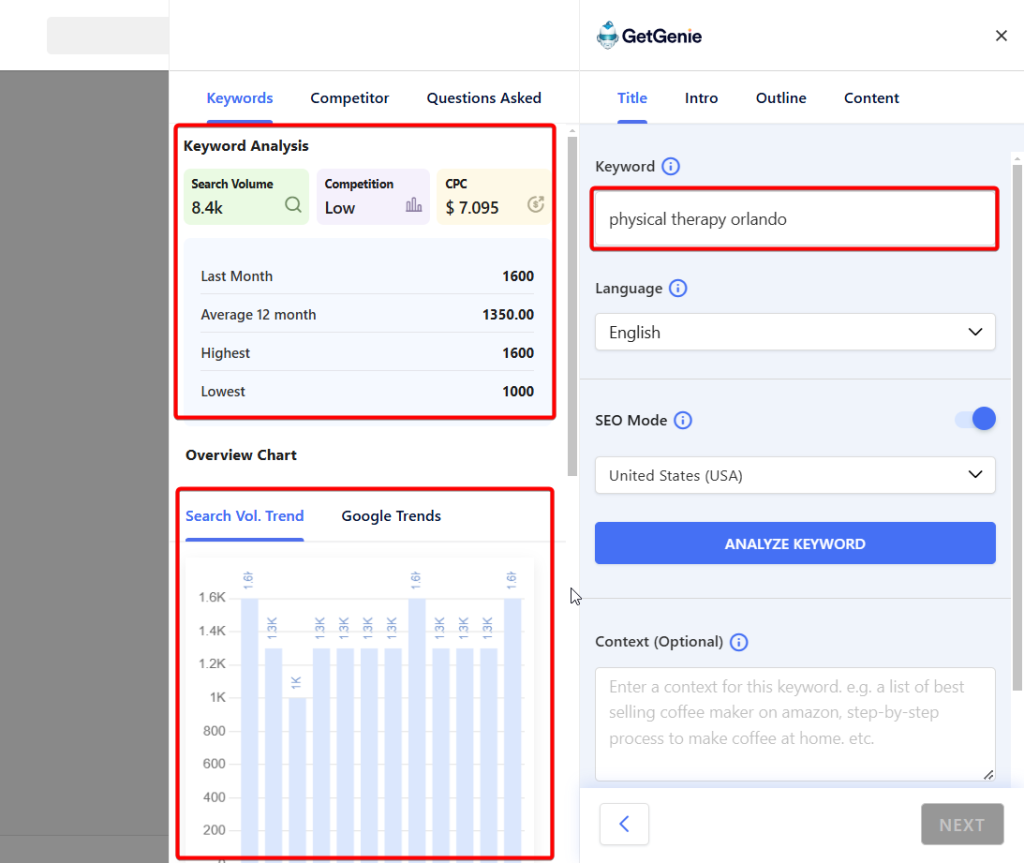
On top of that, PobierzGenie will also show you the related keywords, including long-tail & LSI keywords with their valuable data like search volume and CPC.
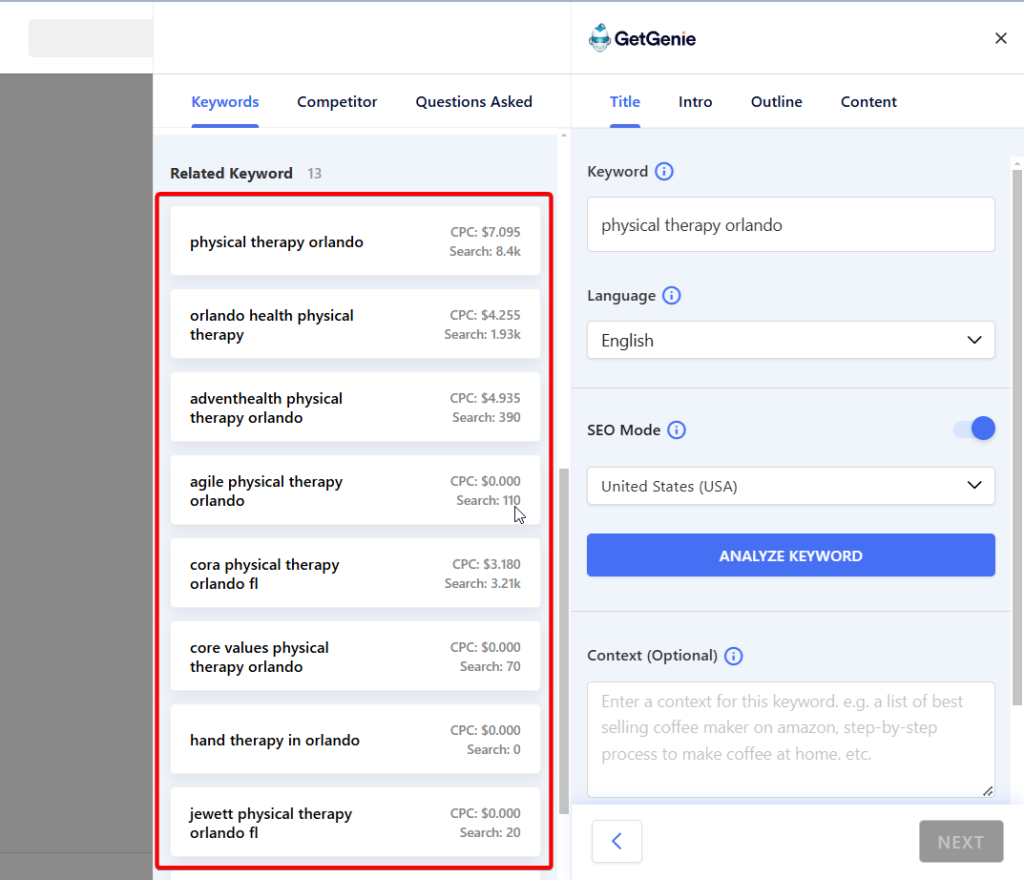
Also, make sure to tap into “Planer słów kluczowych Google” to gather relevant keywords related to your services and locations, allowing you to see what people are searching for in your area. You can also find their avg. monthly searches & competitions from the tool.
This tool is meant for finding profitable keywords for paid search campaigns in Google Ads. But the keyword insights it displays can also be used for local keyword research.

Also, make sure to use “OdpowiedźPubliczność” to find out common questions and search phrases related to your products, services, and locations. It’s a super-handy tool to discover hidden opportunities.
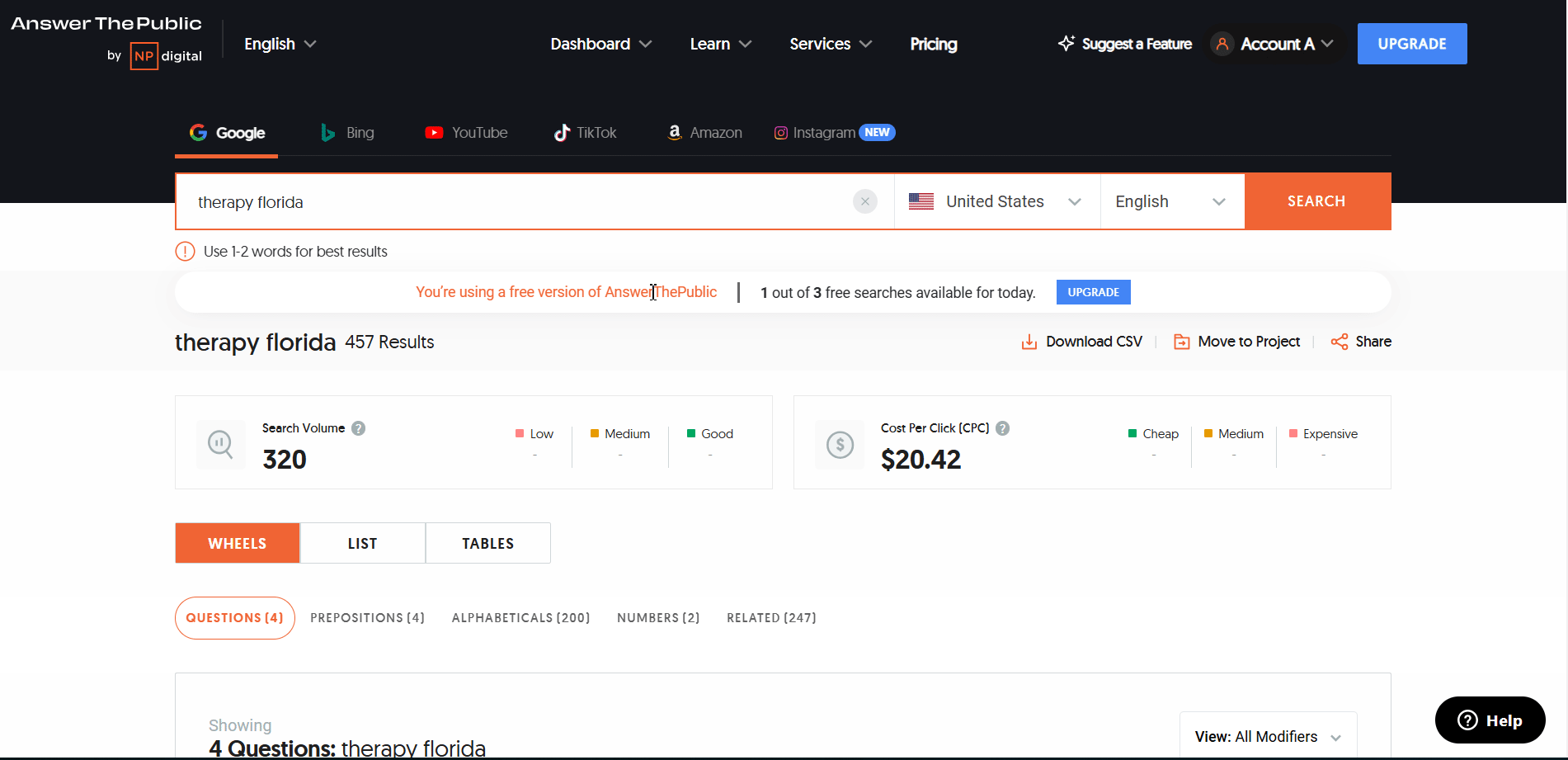
Evaluate the Local Metrics
Filter the local keywords from the list and prioritize terms for which you have a high chance of gaining good rankings in your specific location.
Ensure you check all your keywords’ local metrics. Delete terms from your list if they have no local search volume or have high difficulty.
Underscore terms & keywords that have the maximum potential to enhance local visibility and drive relevant organic traffic.
Detect Competitors’ Keywords
In addition, you can discover more local keywords by analyzing competitors’ web pages on similar products or services. Type a local keyword related to your solution in Google to identify competitors.
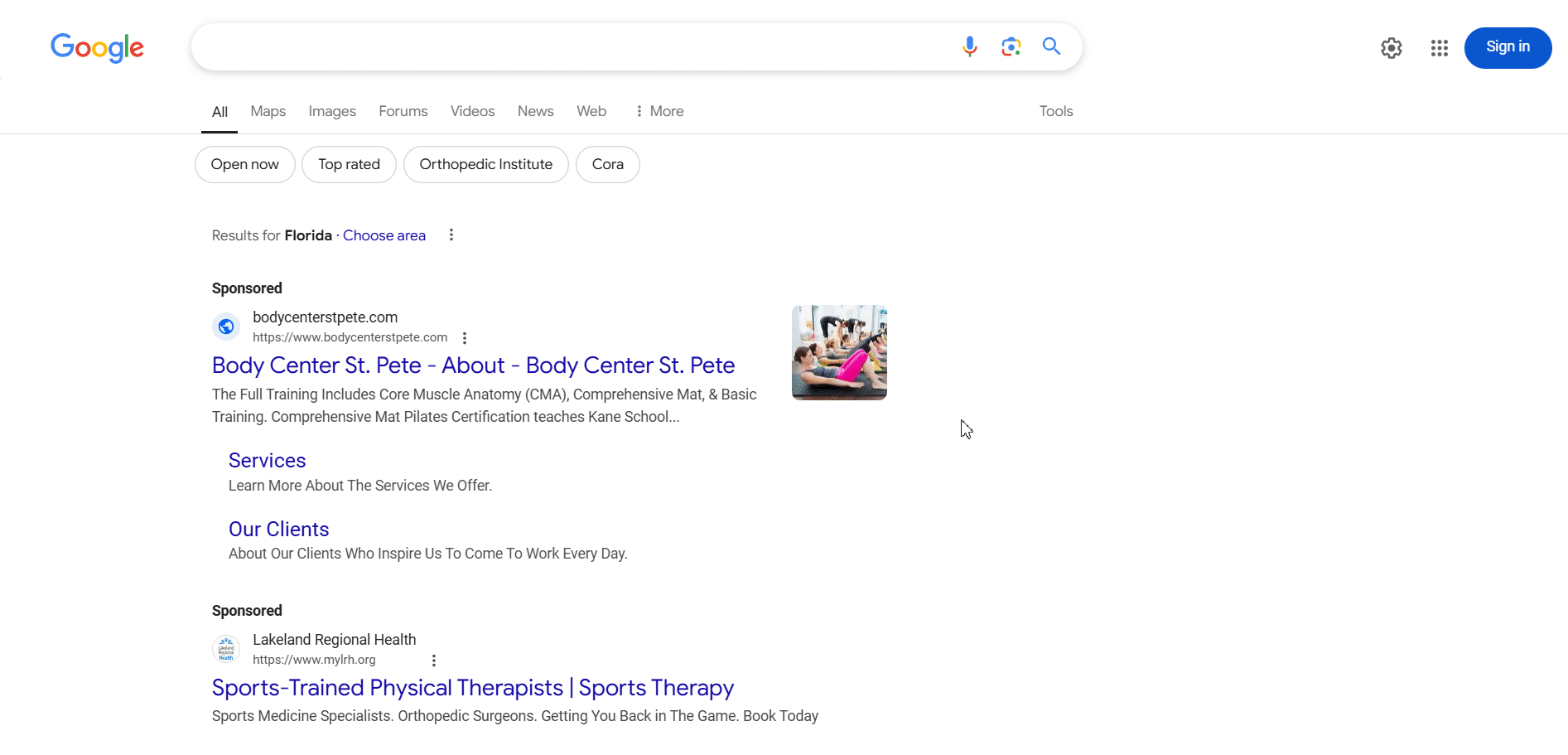
Once you have the list of your main competitors, refer to GetGenie’s “Tryb dżina” to discover keywords competitors rank for but you don’t.
Add the URLs of your competitors (as many as you want) and also yours. And then, give a prompt like this- “Give me the list of keywords that these competitors rank for but I don’t”. GetGenie will follow your instructions and return the output to your liking.
Emphasize Keyword Mapping
Now that you have a holistic list of local SEO keywords to target, go for keyword mapping at this step. That is, assigning each target keyword to the existing or future page that will target it.
With keyword mapping, you ensure an optimized page for every crucial search term.
SEMRush’s “Kreator strategii słów kluczowych” can group your keywords into pages automatically—based on relevance and search intent to make content planning easier.
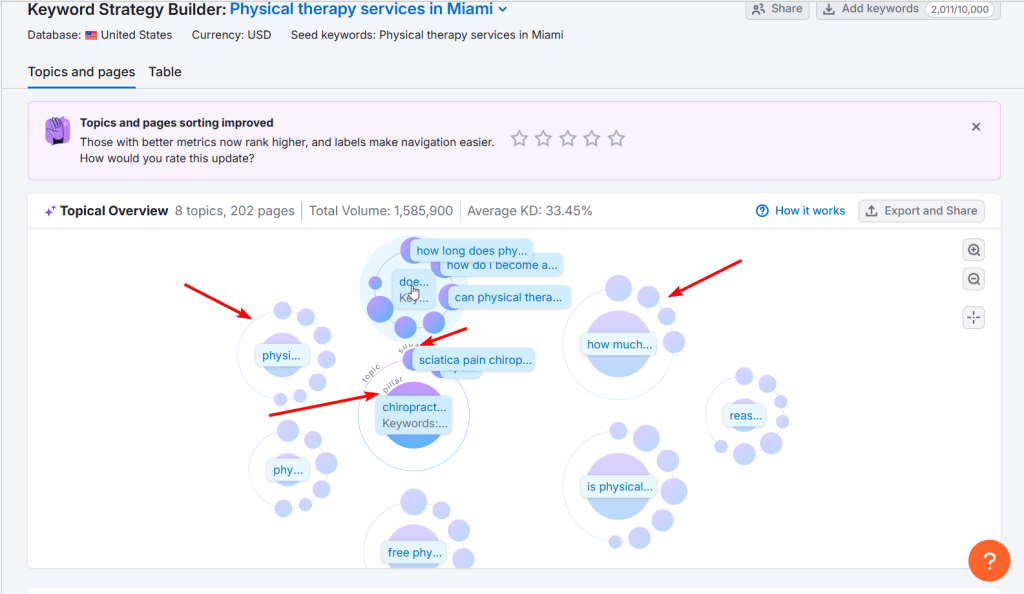
If an intended page doesn’t exist yet, assign it a target URL and create a page that fulfills search intent. This means giving searchers & Google exactly what they want.
For pages that already exist and require optimization, assign the existing URL without making any changes if everything looks good. With a simple spreadsheet, you can list all the URLs and track & manage them with their status updates.
Don’t Forget to Optimize Your Google Business Profile
Apart from optimizing your website for local keywords, also optimize your Google Business Profile (GBP) as the information showing up on GBP can be used in the local pack.
For example, adding local keywords to your business description will help Google align your GBP to relevant queries. The more your GBP profile shows up for relevant queries, the higher the visibility.
Always be mindful of choosing categories in GBP. Make sure to pick categories that reflect your business precisely. Adding non-relevant categories for SEO is contrary to Google’s guidelines.
Also, your GBP should clarify what your business is all about, what products or services your business offers, who can benefit from your offerings & the related info. Don’t just randomly add keywords to your GBP content as it won’t help in securing ranks for the targeted local keywords.
Ready to Multiply Your Local Business Sales?
Local keyword research is challenging and you need to execute the task following a tried and true local SEO strategy, rather than going about the job randomly.
I have shared the above tips based on my hands-on experience of conducting local keyword research for a client based in the USA.
Also, the tools I named in various steps of this post, including GetGenie & SEMRush helped me do local keyword research effectively. So, start doing local keyword research for your business & elevate your conversions & sales in no time.

